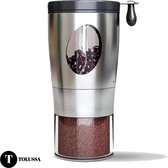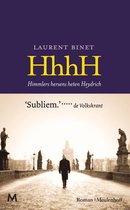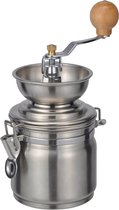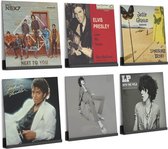Everything Is Natural Exploring How Chemicals Are Natural, How Nature Is Chemical and Why That Should Excite Us
Afbeeldingen
Sla de afbeeldingen overArtikel vergelijken
- Engels
- Paperback
- 9781839162404
- 28 januari 2021
- 182 pagina's
James Kennedy
Samenvatting
This book explores the history of chemical fears, events that have amplified it and how manufacturers, teachers, journalists etc. can make better connections with the public by telling stories that are more engaging about chemistry.
Since the early 1990s, advances in toxicology have allowed scientists to detect traces of adulterant substances in everyday products – even down to parts per billion concentrations. We can now detect the presence of harmful ingredients at levels so low that they actually cause no harm.
Nonetheless, we get scared. We are now able to overreact to harmless, negligible sources of contamination and flock to ‘natural’, ‘organic’ and ‘chemical-free’ alternative products at elevated prices instead. This urge is driven in part by a set of interesting psychological quirks called the naturalness preference or biophilia. While exposure to many aspects of nature improves our physical and mental wellbeing, marketers are taking advantage of our naturalness preference by selling us ‘organic’ and ‘natural’ products with no functional advantage, sometimes to the detriment of the environment, and that have the unfortunate added effect of peddling a fear of conventional products that do not make such natural connotations. This fear of chemicals, exaggerated by marketers, has led some of us to seek nature in the form of expensive consumer product, which offer almost none of the benefits of spending time outdoors in real nature (which is free of charge).
We thus chase nature in the wrong form. We feel guilt, anxiety and mental stress from being coaxed into paying a hefty premium price for "natural" products that are neither safer nor more effective than conventional ones, and forget to appreciate real nature in the process.
This book explores the history of chemical fears and the recent events that amplified it. It describes how consumers, teachers, doctors, lawmakers and journalists can help make better connections with the public by telling stories that are more engaging about chemistry and materials science. Written in a sympathetic way, this book explains both sides of the argument for anyone with an interest in science.
Since the early 1990s, advances in toxicology have allowed scientists to detect traces of adulterant substances in everyday products – even down to parts per billion concentrations. We can now detect the presence of harmful ingredients at levels so low that they actually cause no harm.
Nonetheless, we get scared. We are now able to overreact to harmless, negligible sources of contamination and flock to ‘natural’, ‘organic’ and ‘chemical-free’ alternative products at elevated prices instead. This urge is driven in part by a set of interesting psychological quirks called the naturalness preference or biophilia. While exposure to many aspects of nature improves our physical and mental wellbeing, marketers are taking advantage of our naturalness preference by selling us ‘organic’ and ‘natural’ products with no functional advantage, sometimes to the detriment of the environment, and that have the unfortunate added effect of peddling a fear of conventional products that do not make such natural connotations. This fear of chemicals, exaggerated by marketers, has led some of us to seek nature in the form of expensive consumer product, which offer almost none of the benefits of spending time outdoors in real nature (which is free of charge).
We thus chase nature in the wrong form. We feel guilt, anxiety and mental stress from being coaxed into paying a hefty premium price for "natural" products that are neither safer nor more effective than conventional ones, and forget to appreciate real nature in the process.
This book explores the history of chemical fears and the recent events that amplified it. It describes how consumers, teachers, doctors, lawmakers and journalists can help make better connections with the public by telling stories that are more engaging about chemistry and materials science. Written in a sympathetic way, this book explains both sides of the argument for anyone with an interest in science.
Productspecificaties
Inhoud
- Taal
- en
- Bindwijze
- Paperback
- Oorspronkelijke releasedatum
- 28 januari 2021
- Aantal pagina's
- 182
- Illustraties
- Nee
Betrokkenen
- Hoofdauteur
- James Kennedy
- Hoofduitgeverij
- Royal society of chemistry
Overige kenmerken
- Extra groot lettertype
- Nee
- Product breedte
- 152 mm
- Product lengte
- 228 mm
- Studieboek
- Nee
- Verpakking breedte
- 152 mm
- Verpakking hoogte
- 228 mm
- Verpakking lengte
- 228 mm
- Verpakkingsgewicht
- 286 g
EAN
- EAN
- 9781839162404
Je vindt dit artikel in
- Categorieën
- Taal
- Engels
- Beschikbaarheid
- Leverbaar
- Boek, ebook of luisterboek?
- Boek
- Studieboek of algemeen
- Studieboeken
Kies gewenste uitvoering
Prijsinformatie en bestellen
De prijs van dit product is 25 euro en 99 cent.- Prijs inclusief verzendkosten, verstuurd door bol
- Ophalen bij een bol afhaalpunt mogelijk
- 30 dagen bedenktijd en gratis retourneren
- Dag en nacht klantenservice
Rapporteer dit artikel
Je wilt melding doen van illegale inhoud over dit artikel:
- Ik wil melding doen als klant
- Ik wil melding doen als autoriteit of trusted flagger
- Ik wil melding doen als partner
- Ik wil melding doen als merkhouder
Geen klant, autoriteit, trusted flagger, merkhouder of partner? Gebruik dan onderstaande link om melding te doen.








